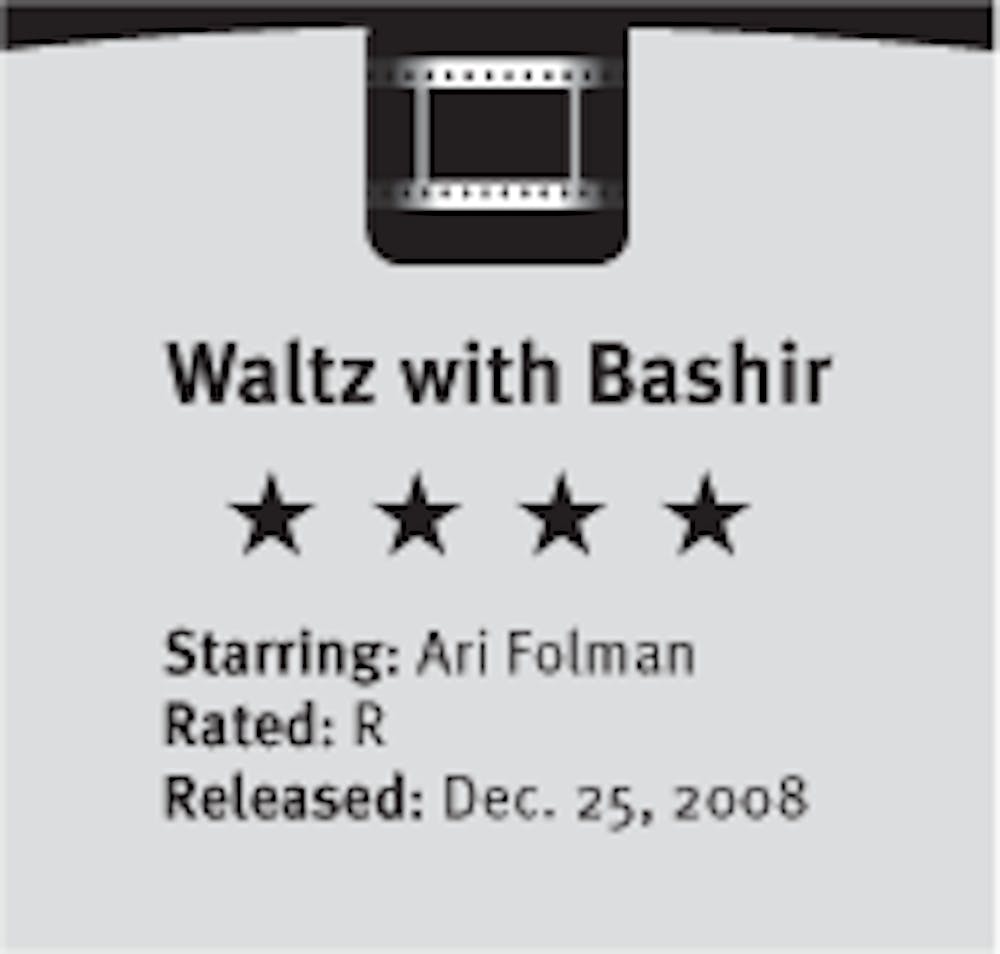Waltz with Bashir: Embracing the Subjectivity of Emotional Experience

Admit it: The choice to use animation seems counterintuitive for a movie that sells itself as a documentary. Wouldn't a more typical, less fantasy-like form be more appropriate for a film that seeks to uncover past events? Wouldn't a normal documentary be more objective, more realistic, and more, well, true?This film challenges this kind of thinking and the notion that truth is specific to a certain kind of filmmaking. Actually, one can argue that it is impossible to be completely objective or "truthful" in any artistic medium.
Our human experience is so complex and our memory so subjective that any attempt to recreate reality is going to be lacking at best. Even in the most "objective" documentaries, one must realize that the camera prioritizes certain perspectives in order to accomplish specific goals. If the director wants to make an event exciting, he may choose to use a handheld camera with a specific lens. This is the director's subjective decision, which may not be the way other people would choose to film the event.
All film is a form of deception; movies trick our minds and our eyes in order to tell a story. The multitude of camera lenses, stunt doubles, green screens, props, sound stages, and special effects are only a few ways that movies seek to effectively deceive its viewers. One practical example is the physical shooting of a movie. During production, a movie is never filmed in the correct sequence of time; doing this would incur unnecessary financial costs and cause many avoidable inconveniences. Yet, in the editing room, these disparate scenes are spliced together to give the appearance of continuity.
On an even simpler level, we know that Christian Bale really isn't a superhero after dark, yet we allow ourselves to be deceived in order to enjoy the story. Waltz with Bashir recognizes the innate subjectivity of film, but instead of faking "reality," it embraces the freedoms of film and animation in order to create a more authentic experience. It is this liberation that allows for an effective expression of very personal and emotional events.
Waltz with Bashir is Ari Folman's attempt to retrace and relive his experience as an Israeli soldier in the Lebanon War of 1982. The film is about remembering past events, and thus, the search is inextricably linked to memories and dreams. In fact, the film opens with nightmare.
Right from the beginning, we find ourselves immersed in a surreal world saturated with deep blues and vivid yellows as we watch rabid dogs terrorize everything in their way. The film cuts to a bar scene where we see Folman sitting with a friend, listening to his war compatriot retell this horrific dream. When asked if he has any of these dreams, Folman realizes that he does not have any recollection of the war.
How can such a traumatic, emotional, and personal experience leave no mark on his life? Folman is deeply troubled by this, and the rest of the film follows him as he finds the people who help him recover his memory.
He meets a variety of people, ranging from soldiers who were once his army mates to psychoanalysts and psychiatrists who offer their analysis. Each of these encounters is visually articulated on the screen, from a soldier's dream of resting on a giant nude woman as she swims in the ocean to a soldier's near-death experience when his tank was ambushed. Each of these encounters adds a unique dimension to Folman's incomplete memory which, when fully restored, reveals a shocking truth about Folman's past.
The beauty of the film comes in the visual renderings of these dreams and memories. The animation is stunning: The colors, music, and pace of the film work perfectly to create the somber, surrealistic nature of these experiences.
Waltz with Bashir doesn't pretend to be "true," something that no movie can ever really be. The strict factualness of the events becomes somewhat irrelevant as the retelling of the emotional experiences is much more fascinating.
Truth is important in the film, but the objective is not to document. Instead, the truth is found in Folman's personal experience, one that fully embraces the subjectivity of all memory and perception. The freedom of the medium allows Folman to effectively communicate the dystopic and surreal nature of his past. This is all art can be: a personal, emotional, and subjective expression. And this is a successful one.
More from The Rice Thresher

Scott Abell named football head coach
Rice football has hired Scott Abell as the program’s 20th head coach, according to an announcement from director of athletics Tommy McClelland, who led a national search to fill the position.

Local Foods launches in newly renovated Brochstein space
Local Foods Market opened at Brochstein Pavilion Nov. 19, replacing comfort food concept Little Kitchen HTX. The opening, previously scheduled for the end of September, also features interior renovations to Brochstein. Local Foods is open from 8 a.m. to 6 p.m. on weekdays and 9 a.m. to 5 p.m. on weekends.

Scan, swipe — sorry
Students may need to swipe their Rice IDs through scanners before entering future public parties, said dean of undergraduates Bridget Gorman. This possible policy change is not finalized, but in discussion among student activities and crisis management teams.

Please note All comments are eligible for publication by The Rice Thresher.